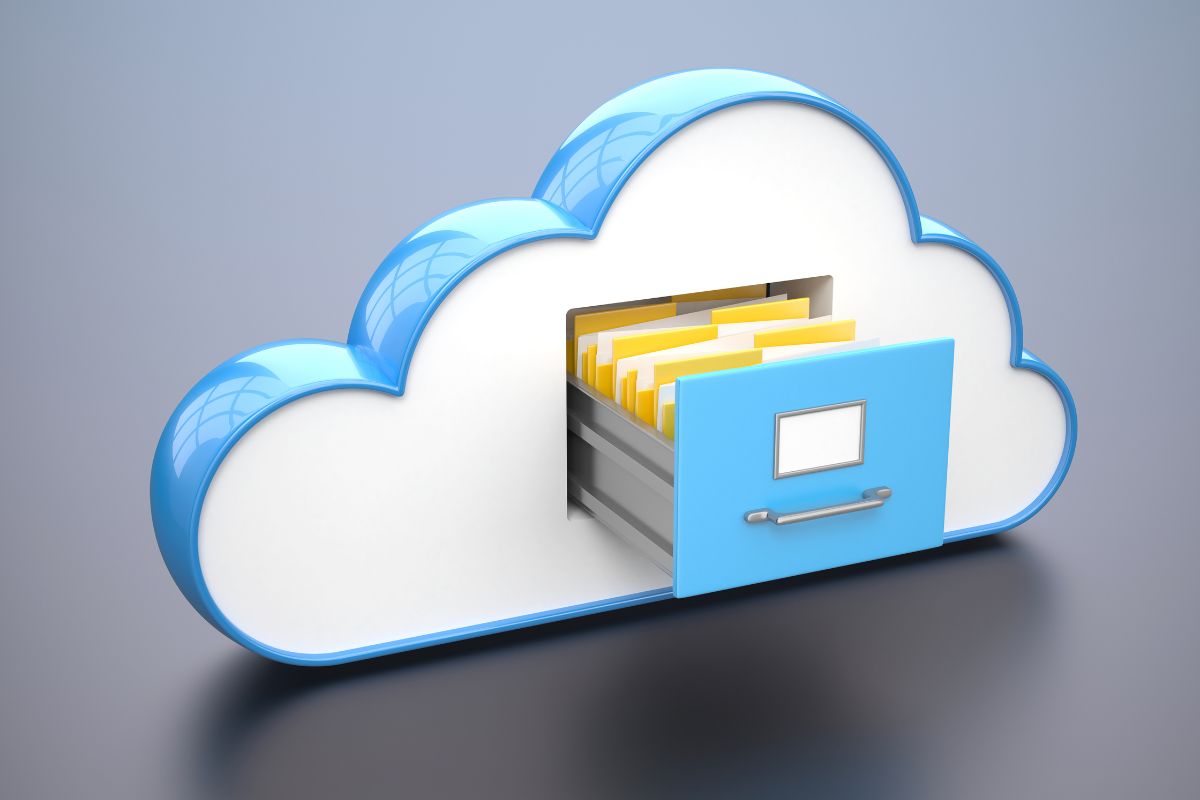Cloud hosting is a type of web hosting service where data centers store and manage servers for multiple customers.
The customer pays only for the resources they use. This means that you don’t pay for unused server space or bandwidth.

In addition to providing web services, cloud hosting also provides storage, backup, security, and other features.
These benefits come at a price, however, because you’re paying for these services regardless of whether you use them.
Cloud hosting has become very popular over the years. It offers several advantages such as cost savings, flexibility, scalability, and reliability. However, it does have some drawbacks.
What Is Cloud Computing?
Cloud computing is a model in which shared resources, software, and information are provided on-demand over the Internet.
The term “cloud computing” was coined by USENIX in 2002 to describe an emerging technology trend that allows users to run applications without installing anything locally.
Instead, users can access hosted apps through a thin client program, such as Microsoft’s Remote Desktop Connection.
The cloud computing infrastructure includes network connections, servers, operating systems, middleware, and application platforms.
How Does Cloud Hosting Work?
When you sign up for cloud hosting, you create a user account. You then log in to your account and download the software needed to set up your VM.
You can either purchase a preconfigured VM or build your own from scratch. Either way, you can customize your VM according to your needs.
Once you have created your VM, you can launch it from within your browser. You can connect to it remotely via the RDP protocol.
If you decide to keep your VM running, you can assign it a static IP address. You can also reserve a domain name for it.
If you don’t plan to use your VM anymore, you can stop it anytime. Once it stops, you’ll lose access to its resources.
What Are The Advantages Of Using Cloud Hosting?
Cloud hosting comes with several advantages. Here are just a couple of them:
Cost Savings
As mentioned earlier, there are no upfront costs associated when you sign up for cloud computing. This means you can save money right away.
Scalability
When you use cloud hosting, you can scale up or down your resources at any time. For example, you might need more memory or storage capacity later on.
Flexibility
Since you can change your VM settings whenever you want, you can tweak it to suit your specific needs.
Performance
Because your VM resides in the cloud, you don’t have to worry about performance issues. It’s always available.
Availability
Your VM will never go offline because it’s located in multiple data centers across the globe.
Backup
All your data is backed up automatically every day so that you can quickly recover lost information.
Security
Your data is stored securely in remote locations. Even if someone hacks into your computer, he/she cannot gain access to your files.
Reliability
Your VMs will be backed up automatically every day. In case something goes wrong with your VM, you can easily restore it.
Hyperscale Cloud Hosting
HyperScale cloud hosting is a new way of deploying virtual machines (VMs) that provides enterprise-level capabilities without requiring large investments in physical servers.
With Hyperscale cloud hosting, you get the same level of server density and resource utilization as traditional VMs but with significantly lower capital investment.
This allows you to deploy hundreds of thousands of VMs on a single physical host.
Managed Cloud Hosting

A managed cloud service provider offers IT support and maintenance services to help you manage your cloud environment.
They provide everything from initial setup to ongoing monitoring and maintenance.
For example, they’ll install operating systems, configure firewalls, set up backups, monitor performance, and ensure uptime.
Cloud computing is growing rapidly and there are now several different providers offering cloud solutions.
Choosing the right provider is important because if you sign up with the wrong provider, you could end up paying for unnecessary services or even wasting money.
Green Cloud Hosting
Green cloud hosting is a concept that was created in order to reduce the environmental impact of cloud computing.
By reducing the amount of energy needed to run a cloud, we can help protect our planet’s resources.
Green cloud computing is a way of deploying virtual machines without consuming any additional power than normal.
When you create a virtual machine, you need to allocate enough memory, storage space, CPU cycles, and bandwidth to run your application.
However, when you deploy a virtual machine into a cloud, you don’t have to worry about how much RAM, disk space, or CPU cycles will be allocated to your VM.
This means you can save a lot of energy and money.
Public Cloud Vs. Private Cloud
There are two types of clouds: public and private. Public clouds are owned by third parties. Private clouds are hosted internally.
Private clouds are usually used for internal applications such as email servers, databases, file sharing services, etc. They’re not intended for external users.
Private clouds are often referred to as “on-premises” clouds.
Public clouds are typically used for web applications, mobile apps, and other Internet-based services. These are called “third-party” clouds.
The main difference between these two types of clouds is who owns them.
In a private cloud, you control all aspects of the infrastructure including security, networking, and management tools.
In a public cloud, you pay a monthly fee to an outside company for the privilege of using their hardware, software, and network.
Which Is Better?
It depends on what you want to do. If you’re looking for better scalability, reliability, and availability, a private cloud may be best for you.
If you’re looking for cost savings, flexibility, and ease of use, a public cloud may be ideal.
Conclusion
As you can see, cloud hosting has many benefits. However, it does come with some drawbacks too.
You should carefully consider which type of cloud would work best for your business before signing up.
That said, I hope this article helped you learn more about cloud hosting and made it easier for you to choose the right one for your business.
- The 20 Best Blogging Courses That Are For Beginners - December 7, 2022
- 20 Best WordPress Plugins For Blogs For Effective Blogging! - December 7, 2022
- 5 Excellent Affiliate Marketing Courses To Learn - December 6, 2022








